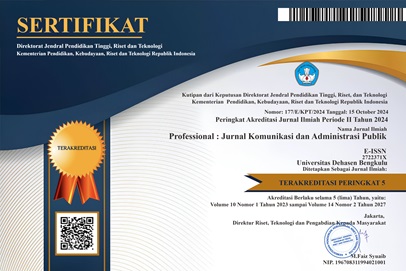Konsep Desentralisasi Dan Otonomi Daerah dalam Meningkatkan Kinerja Pemerintahan Desa Di Indonesia
Abstract
The aim of this research is to analyze the influence of decentralization and regional autonomy on the performance of village government in Indonesia, as well as identify the challenges faced in implementing regional autonomy. The research method used is literature study, which includes analysis of documents, journals and official reports to collect information and data related to decentralization, regional autonomy and village government performance. The results of this research show that although decentralization provides greater autonomy to village governments, capacity gaps, challenges in financial management, and adaptation to global change are still significant obstacles in improving the performance of village governments in Indonesia. Although decentralization has given village governments greater authority and independence, there are significant gaps in capacity, funding and adaptation to global change. Village governments still face limitations in terms of human resources, administrative capabilities, and adequate infrastructure support to manage autonomy effectively. This often hinders improving village performance in providing responsive and efficient public services to the community. These challenges are increasingly exacerbated by problems in managing village funds and the inability of villages to respond to demands for sustainable development caused by globalization.
Downloads
Copyright (c) 2024 Helti Handraini, Aldri Frinaldi, Lince Magriasti, Hendra Naldi

This work is licensed under a Creative Commons Attribution-ShareAlike 4.0 International License.





